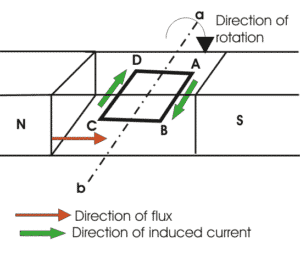Why are transformers rated in KVA?
Transformers are rated in kVA or VA and not in kilowatts. While electric loads such as motors, lamps, heaters, etc. are always rated in kW, equipment used for power generation…
Transformers are rated in kVA or VA and not in kilowatts. While electric loads such as motors, lamps, heaters, etc. are always rated in kW, equipment used for power generation…
Here are the most frequently asked transformer interview questions and their answers What is a transformer? By definition, a transformer is a static electrical device that transforms electric energy from…
A Buchholz relay in a transformer is an oil-activated relay, used to sense abnormalities such as short circuits, overheating, and oil leakages inside a transformer. It is a cylindrical object…
Motor stalling is a condition in which a motor stops rotating even when there is sufficient voltage at its terminals. This condition occurs when the torque required by the load…
As the name indicates, starters are used to start or stop a motor. It consists of an electromechanical switch and protection devices (overload and/or short-circuit protection). Why should we need…
This is a quite common question asked by many. In fact, it is necessary to know why we don't apply DC voltage to a transformer coil. You may come across…
The most efficient electrical machine is the transformer. Transformers have efficiency above 95%. The autotransformer has an efficiency of close to 98%. The maximum efficiency is achieved under the fully…
 In order to understand the operation of a simple generator, consider rectangular coil ABCD placed in a magnetic field as shown in the figure. The two ends of the coil are connected to the two copper half rings (or split rings) R1 and R2 called commutator. There are two carbon brushes B1 and B2 which press lightly against the two half rings.
In order to understand the operation of a simple generator, consider rectangular coil ABCD placed in a magnetic field as shown in the figure. The two ends of the coil are connected to the two copper half rings (or split rings) R1 and R2 called commutator. There are two carbon brushes B1 and B2 which press lightly against the two half rings.